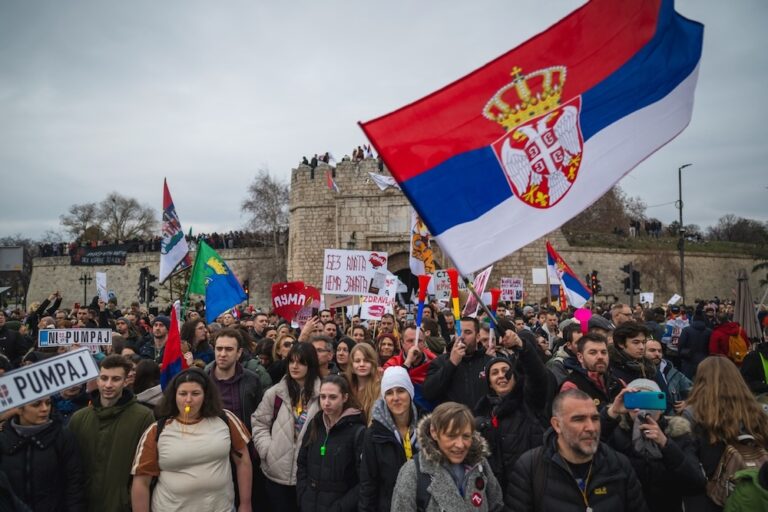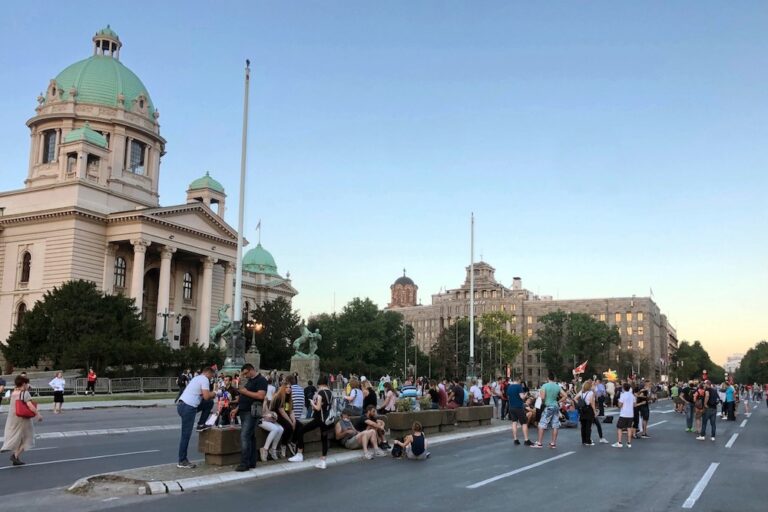(RSF/IFEX) – RSF has condemned the criminal charges brought against British journalist Dominic Hipkins and the arrest of four local individuals. They are accused of “harming the image of Montenegro” with a “fabricated report” on child trafficking in the region and face up to three years in prison. On 4 February 2004, police in Montenegro […]
(RSF/IFEX) – RSF has condemned the criminal charges brought against British journalist Dominic Hipkins and the arrest of four local individuals. They are accused of “harming the image of Montenegro” with a “fabricated report” on child trafficking in the region and face up to three years in prison.
On 4 February 2004, police in Montenegro said they were pressing charges against Hipkins, Jovo Martinovic, Sinisa Nadazdin, Dragan Radevic and Nenad Zevenic for “harming the image of Montenegro” over an article that appeared in the British weekly “Sunday Mirror” on 25 January. The article was picked up by local Montenegrin newspapers. In the article, Hipkins described how he posed as someone wanting to purchase children and was offered three young children for sale.
Police said that, aided by the four individuals who were arrested, the journalist fabricated the story and paid women in Podogorica to make up their accounts. Hipkins’ four local colleagues are being held in custody and the British journalist is currently being sought by police.
Without commenting on the content of Hipkins’s article, RSF called for the release of the four arrested individuals and the dropping of all charges, which the organisation considers to be disproportionate. Journalists should never be put at risk of prison sentences for harming a country’s image, RSF said. The authorities should, on the contrary, foster public debate on issues of general interest, in particular on such serious matters as child trafficking.
RSF called on legislators to repeal Article 82 of the Criminal Code, along with all other articles that unreasonably protect state symbols, in line with recommendations made by the Organisation for Security and Co-operation in Europe (OSCE) in November 2003.


